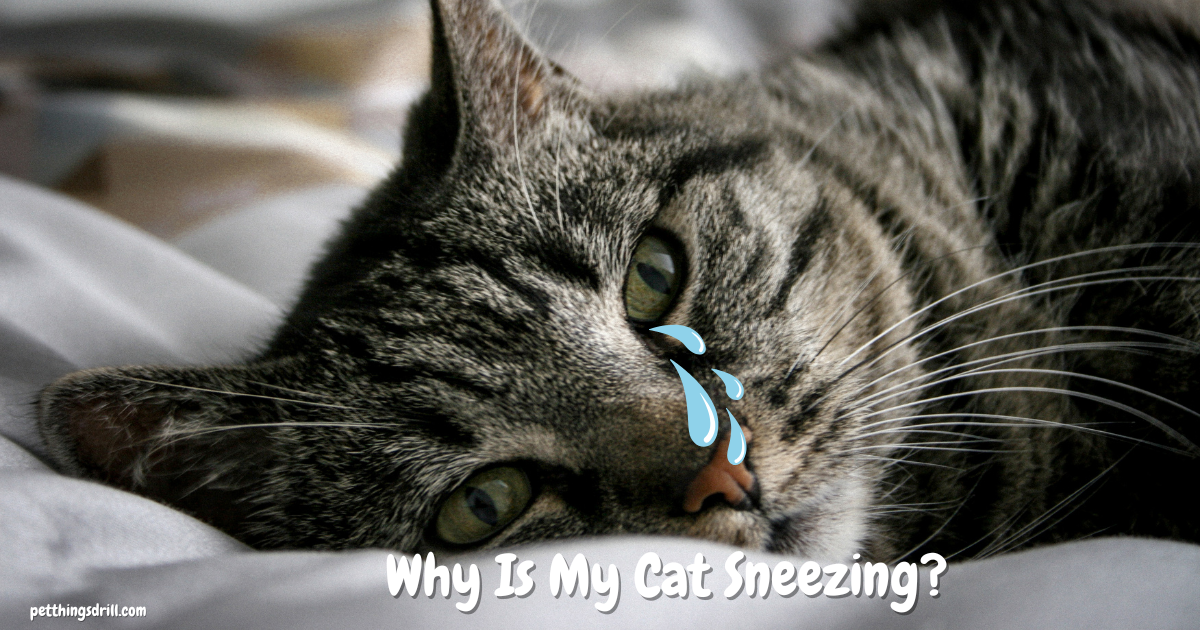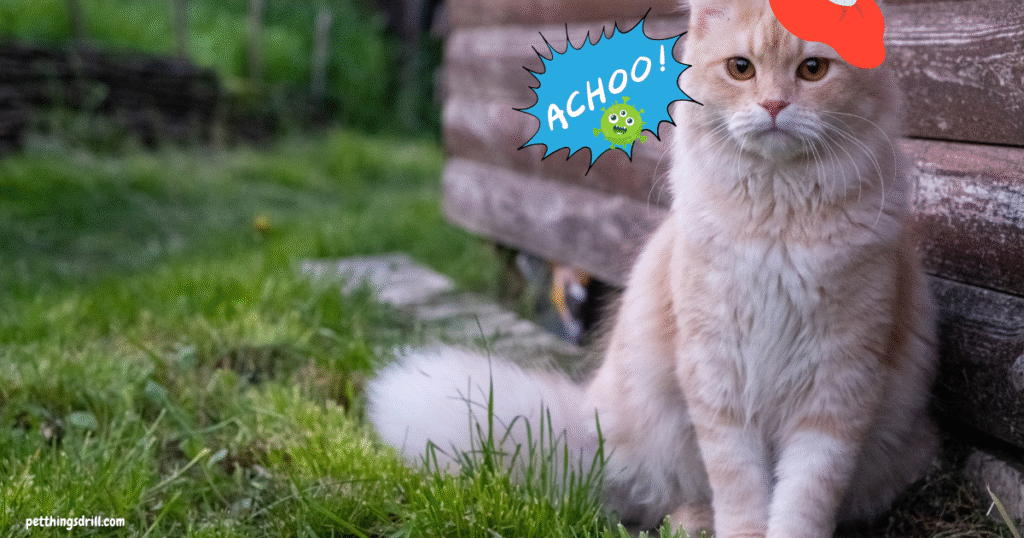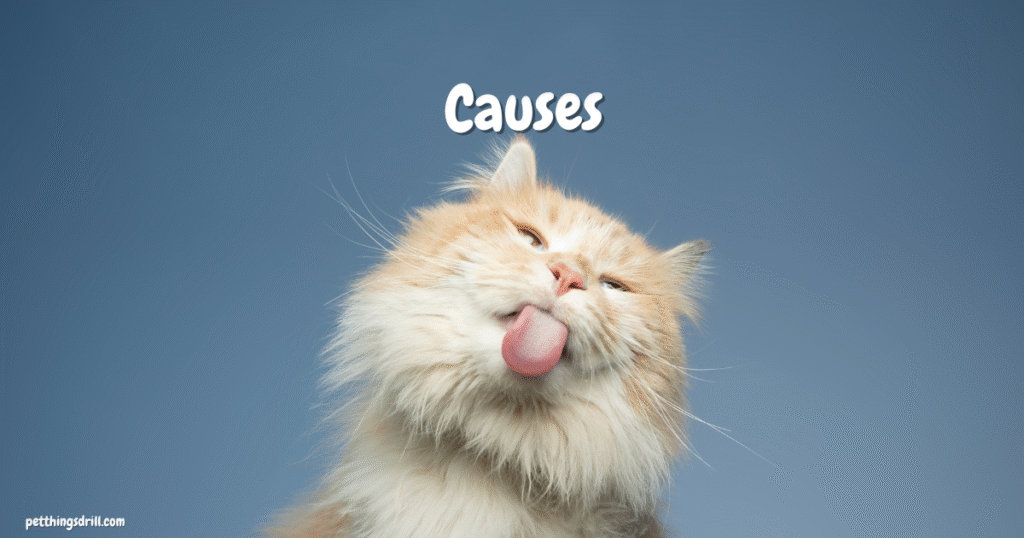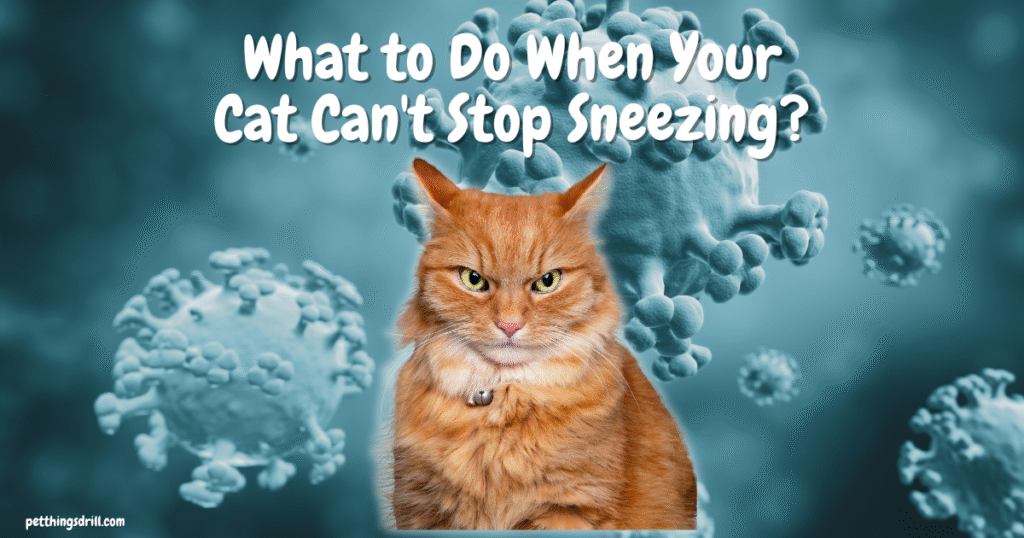


The sudden, sharp sound of a cat sneeze can be startling, and sometimes even a little cute. A single “achoo” from your furry friend isn’t usually a cause for alarm. Just like us, cats can get a tickle in their nose from a bit of dust or a stray hair. But when that single sneeze turns into a regular occurrence, it’s natural to feel a pang of concern. You might wonder, ‘Why is my cat sneezing?’ It’s a question that many loving cat owners ask, and the answer isn’t always simple. Understanding the potential causes can help you know when to offer a comforting pat.
Most of the time, sneezing is just your cat’s body doing its job. It’s a powerful reflex designed to expel irritants from the nasal passages. Think about all the things your cat’s curious nose encounters daily. Dust bunnies under the couch, pollen drifting in through an open window, or even the strong scent of the cleaner you just used on the floor can all trigger a sneeze. An occasional sneeze is perfectly normal. However, if you’re asking, “Why is my cat sneezing so much?” or “Why is my cat sneezing a lot?”, it’s time to pay closer attention. Persistent sneezing can be a sign that something more is going on.
Common Culprits: From Dust to Disease
One of the most frequent reasons for a sudden bout of sneezing is an upper respiratory infection (URI). Often referred to as a “cat cold,” a URI is similar to the common cold in humans. These infections are typically caused by viruses, like feline herpesvirus or feline calicivirus, and are highly contagious between cats. If your cat has a URI, sneezing is often accompanied by other symptoms, such as watery eyes, a runny nose with clear or colored discharge, and sometimes a decrease in appetite or energy. You might notice your cat is also coughing and sneezing, which points more strongly toward an infection affecting their respiratory system.
Another major category of causes is irritants in the environment. Cats have incredibly sensitive noses. Things that you might not even notice can be a major source of irritation for them. Strong perfumes, scented candles, aerosol sprays, and even some types of cat litter can make your cat sneeze. If you observe that your cat is sneezing all the time, try to think if you’ve introduced anything new. A new cleaning product, a different brand of litter, or even cigarette smoke can be the offender. This is often the case when a cat starts sneezing all of a sudden. Besides that, if the cat eats vegetables that it hasn’t yet consumed can also be the reason behind allergic attacjk.
Allergies are another potential answer to the question. Yes, cats can have allergies, too! They can be allergic to the same things we are, including pollen, mold, and dust mites. Food allergies can also sometimes manifest with respiratory symptoms, including sneezing. Pinpointing an allergy can be tricky and may require working with your vet. This will also help you to identify the specific allergen and find the best way to manage it.
Why Is My Cat Sneezing? More Serious Causes

While infections and irritants are common, some causes of sneezing require more immediate medical attention. Sometimes, a foreign object can get lodged in a cat’s nasal passage. A blade of grass inhaled during an outdoor adventure or even a small piece of food can get stuck and cause significant irritation, leading to frantic sneezing. Your cat may paw at their face or have a visible discharge from one nostril.
Dental disease is another surprising but significant cause of sneezing. An infection in a tooth root, particularly one in the upper jaw, can create a channel into the nasal sinuses. This can lead to inflammation, drainage, and chronic sneezing. If you notice your cat drooling and sneezing, it could be a sign of a dental problem. Other clues include bad breath, difficulty eating, or swelling around the face.
In some cases, you might be asking a more frightening question: why is my cat sneezing blood? Seeing blood, whether it’s a few specks in the mucus or an outright nosebleed, is always a reason to contact your vet immediately. While it can be caused by the trauma of violent sneezing from a simple infection, it can also indicate a more serious issue. Foreign bodies, severe dental disease, fungal infections (like Cryptococcus), or even nasal tumors can cause bleeding. While nasal tumors are more common in older cats, they are a serious condition that requires prompt diagnosis and treatment.
Similarly, if you notice your cat wheezing and sneezing, it could signal that the issue extends beyond the nasal passages and into the lower airways. This could be related to asthma, which can be triggered by allergens, or it could be a sign of a more advanced respiratory infection like bronchitis or pneumonia. These cat health conditions are serious and need a veterinarian’s evaluation.
What to Do When Your Cat Can’t Stop Sneezing?

So, you’ve established that your cat’s sneezing is more than just an occasional tickle. What’s the next step? The best course of action depends on the accompanying symptoms.
- Observe and Assess: Pay close attention to your cat. Are they eating and drinking normally? Is their energy level the same? Do you see any discharge from their eyes or nose? Is it clear, yellow, or green? Are they showing any other signs of distress, like coughing, wheezing, or difficulty breathing? Your observations will provide valuable information for your veterinarian.
- Evaluate the Environment: Take a look around your home for potential irritants. Have you started using a new air freshener, cleaning product, or perfume? Did you recently switch to a dusty cat litter? Try removing the potential new irritant to see if the sneezing subsides. Improving ventilation and using an air purifier can also help reduce airborne particles that might be bothering your cat.
- Provide Supportive Care: If you suspect a mild cat cold, you can provide some comfort at home while you monitor them. Use a soft, damp cloth to gently wipe away any discharge from their nose and eyes. Running a humidifier or bringing your cat into the bathroom while you take a hot shower can create steam, which helps to loosen congestion. Also, make sure they have easy access to fresh food and water, as a stuffy nose can dull their sense of smell and decrease their appetite.
- Know When to Call the Vet: While home care can help with mild cases, certain symptoms warrant an immediate call to your veterinarian. If you’re asking yourself why is my cat sneezing and you observe any of the following, don’t wait:
- Sneezing blood.
- Thick, yellow, or green nasal discharge.
- Wheezing, coughing, or any difficulty breathing.
- A loss of appetite or refusal to drink for more than a day.
- Extreme lethargy or a significant behavior change.
- Visible facial swelling or pawing at the face.
Your vet will perform a thorough physical exam and may recommend diagnostic tests like blood work, x-rays of the head or chest, or taking a sample of the nasal discharge to determine the underlying cause. Treatment will vary depending on the diagnosis. It could be as simple as a course of antibiotics for a bacterial infection, antiviral medication, or as involved as surgery to remove a foreign object or address a dental issue.
Hearing your cat sneeze repeatedly can be worrying, but by being an observant and proactive owner, you can get to the bottom of the issue. A sneeze is a clue from your cat’s body, and by paying attention to it, you are taking the first and most important step in ensuring their health and happiness.
Conclusion
In conclusion, there are many possible reasons for your cat’s sneezing, ranging from mild irritants and allergies to infections and more serious health conditions. Understanding these causes can help you respond appropriately and provide the best care for your feline friend. Remember to watch for any concerning symptoms like persistent sneezing, blood, difficulty breathing, or changes in appetite, and never hesitate to reach out to your veterinarian with questions or concerns. Your attentiveness and timely action can make a real difference in keeping your cat healthy, comfortable, and happy.

